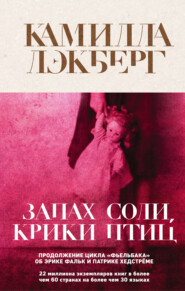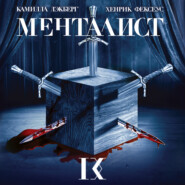По всем вопросам обращайтесь на: info@litportal.ru
(©) 2003-2024.
✖
Buried Angels
Настройки чтения
Размер шрифта
Высота строк
Поля
‘So you’re having a little problem with your taxes, is that right?’
‘Yes, it’s a mess. I don’t know what to say.’ Percy shook his head. ‘Nothing seems sacred any more.’
‘How true. It doesn’t pay to work in this country,’ said Sebastian.
‘No, things were different in Pappa’s day.’ Percy began eating his food, after first giving Pyttan an enquiring glance. ‘You’d think people would appreciate the fact that we’ve put so much work into taking care of this cultural monument. It’s a piece of Swedish history, and our family has borne the brunt of preserving it, and we’ve done it with honour.’
‘True. But times have changed,’ said Sebastian, waving his fork. ‘The winds of social democracy have been blowing for a long time now, and it doesn’t seem to help that we’ve got a conservative government. Nobody’s allowed to have more than his neighbour. If you do, those bastards will take away everything you own. I’ve been through it all myself. Had to pay a lot in back taxes this year, but luckily only on what I have here in Sweden. You’ve got to be smart and put your assets abroad, where the tax authorities can’t get their hands on everything you’ve worked so hard to acquire.’
Percy nodded. ‘Indeed. Naturally. But so much of my capital has always been invested in the manor.’
He wasn’t stupid. He knew full well that Sebastian had exploited him over the years. He’d often allowed Sebastian to borrow the manor for meetings with his customers for hunting parties, or for entertaining his countless mistresses. He wondered whether Sebastian’s wife suspected anything, but that was none of his business. Pyttan kept him on a tight rein, and personally he would never dare try something like that. But he wasn’t about to criticize how other married people behaved.
‘Still, you must have got a sizeable inheritance from your old man?’ said Sebastian as he held up his empty wine glass towards Pyttan. Without revealing so much as a hint of what she was thinking, she picked up the bottle and filled his glass to the brim.
‘Yes, but you know …’ Percy shifted uncomfortably on his chair. He had a deep aversion to discussing money. ‘It costs a fortune to keep the place running properly, and the cost of living keeps going up. Everything is so expensive nowadays.’
Sebastian grinned. ‘The cost of living is definitely on the rise.’
He was blatantly scrutinizing Pyttan, from her costly diamond earrings to her Louboutin high heels. Then he turned to Percy.
‘So what is it you need help with?’
‘Well …’ Percy hesitated, but after casting a glance at his wife, he gathered his courage. He had to resolve the situation, otherwise he’d have to start investigating other options. ‘You see, it’s a matter of a short-term loan.’
A weighty silence followed, but it didn’t seem to bother Sebastian. A little smile played over his lips.
‘I have a suggestion,’ he said then. ‘But I think we should discuss it alone, just the two of us, as old classmates.’
Pyttan was about to protest, but Percy gave her a stern look, which was unusual for him, so she didn’t say a word. His eyes met Sebastian’s and the words flew soundlessly between them.
‘That would probably be best,’ he said, lowering his gaze.
Sebastian smiled broadly. Once again he held out his glass to Pyttan.
It was too hot to be climbing about on the facade when the sun was at its zenith, so during the middle of the day they worked indoors.
‘Shall we start with the floor?’ asked Tobias as they stood in the dining room.
Ebba tugged at a loose scrap of wallpaper and a big piece came off with it. ‘Wouldn’t it be better to do the walls first?’
‘I’m not sure the floor is going to hold. A lot of the boards are rotting in places. I think we should fix that before we do anything else.’ He pressed his foot down on a floorboard, which gave way under his shoe.
‘Okay. We’ll do the floor,’ said Ebba, putting on her protective glasses. ‘How do we go about it?’
She wasn’t afraid of hard work, and she was perfectly willing to put in as many hours as Tobias. But he was the one who had experience of this type of thing, and she had to rely on his expertise.
‘A sledgehammer and a crowbar should do the trick. I’ll take the sledgehammer and you can use the crowbar, okay?’
‘Fine.’ Ebba reached for the tool that Tobias handed her. Then they got started.
She could feel the adrenalin flowing, and she noted with pleasure the burn in her biceps when she stuck the crowbar in the gaps between the planks and pulled up the wood. As long as she pushed her body to its limit, she didn’t have to think about Vincent. When the sweat poured out and the lactic acid filled her muscles, she was free for a brief time. She was no longer Vincent’s mother. She was Ebba, who was fixing up her inherited property, who was breaking it apart and then renovating it.
Nor did she think about the fire. If she closed her eyes, she was reminded of the panic, the smoke stinging her lungs, the heat that made her realize how it must feel to be burned alive. And she remembered the wonderful feeling of finally surrendering.
Then with her eyes fixed straight ahead, and using more strength than was necessary to loosen the rusty nails from the underlying joists, she forced herself to concentrate on the task at hand. But after a while thoughts began crowding in. Who would want to hurt them and why? As she worked, the questions kept whirling through her mind, leading nowhere. She couldn’t think of anyone. They were the only ones who might mean to harm themselves. She had often thought that it would be better if she was dead, and she knew that Tobias had thought the same about himself. But everyone they knew had showed them nothing but compassion. There was no ill will, no hatred, only sympathy for what they’d been through. At the same time, there was no escaping the fact that somebody had been sneaking around in the dark, trying to burn down the house with them inside. Unable to drive the thoughts from her mind, she stopped to wipe the sweat from her forehead.
‘It’s too damned hot in here,’ said Tobias, slamming the sledgehammer against the floor, making small pieces of wood fly in all directions. He’d taken off his T-shirt, fastening it to his carpenter’s belt.
‘Watch out that you don’t get something in your eye.’
Ebba studied his body in the sunlight flooding through the dirty windows. He looked exactly the same as when they first got together. A lean, sinewy body which, in spite of all the hard manual labour, never seemed to acquire any muscles. She, on the other hand, had lost her womanly curves over the past six months. Her appetite had completely disappeared, and she must have dropped more than twenty pounds. She didn’t know for sure, since she never bothered to weigh herself.
They worked for a while in silence. A fly buzzed angrily against a pane, and Tobias went over and threw the window wide open. Outside there wasn’t a breath of wind, so it gave them no relief, but the fly was able to slip out and they were rid of the constant buzzing.
The whole time they were working, Ebba was aware of what had once been. The history of the house was in its walls. She pictured all the children who had come out here to spend the summer at camp, for the sake of fresh air and good health, as it said in the article in an old issue of Fjällbacka-Bladet that she’d found. The house had had other owners too, including her father, but it was mostly the children that she thought about. What an adventure it must have been to leave their parents behind and come out here to stay with children they didn’t know. Sunny days and swimming in salt water, rules and regulations mixed with games and commotion. She could hear their laughter but also their cries. The article had mentioned a report of abuse too, so maybe everything hadn’t been so idyllic. Sometimes she wondered whether the cries came only from the summer camp, or whether her own feelings about the house had got mixed in with other memories. There was something alarmingly familiar about those cries, but she had been very young when she lived here. These memories, if that was what they were, had to belong to the house itself, not to her.
‘Do you think we’ll be able to manage?’ asked Tobias, leaning on the sledgehammer.
Lost in her own thoughts, Ebba jumped at the sound of his voice alongside her. He grabbed the T-shirt hanging from his belt and used it to wipe his face. Then he looked at her. She didn’t want to meet his eyes. Instead, she gave him a furtive glance as she continued to work on a board that was refusing to come up. He made it sound as if he was talking about the renovation, but she realized that his question encompassed much more than that. And she had no answer for him.
When she didn’t reply, Tobias sighed and picked up the sledgehammer again. He banged it against the floorboards, groaning with every blow. A big hole was starting to take shape in the wooden floor in front of him. Again he raised the sledgehammer. Then he slowly lowered it.
‘What the …? Ebba, come and see this!’ he said, motioning her over.
Ebba was still working on the stubborn plank, but her curiosity got the better of her.
‘What is it?’ she said, going over to him.
Tobias pointed down in the hole. ‘What does that look like?’
Ebba squatted down to see better. She frowned. A large dark patch was visible where the floor had been removed. Tar was the first thing she thought, but then she realized what it might be.
‘It looks like blood,’ she said. ‘Lots of blood.’
FJÄLLBACKA 1919 (#ulink_163a3a9b-40f3-5473-adf9-513b731daf97)
Dagmar was smart enough to realize that it wasn’t solely because of her skill as a waitress and her beautiful face that she was hired to work at parties given by the wealthy. There was never anything very discreet about the whispering that went on. The host couple always saw to it that everyone at the table immediately knew who she was, and on this occasion she once again felt the eyes of the sensation-seekers fixed upon her.
‘Her mother … The Angelmaker … Executed …’ The words flew through the air like tiny wasps and their sting hurt, but she had taught herself to keep a smile on her face and pretend not to hear.
This party was no exception. As she walked past, the guests would put their heads together to murmur and give small, telling nods. One of the women put a hand to her mouth in fright and openly stared at Dagmar, who was filling her glass with wine. The German pilot observed with apparent astonishment the commotion she was causing, and out of the corner of her eye she saw him lean towards the woman seated next to him. The woman whispered something in his ear. Her heart pounding, Dagmar waited to see his reaction. The German’s expression changed but then his eyes glittered. Calmly he studied her for a moment before he raised his glass to her. She smiled back and felt her heart beat even faster.
The sound level at the large outdoor table rose as the hours passed. Darkness began to fall, and although the summer evening was still warm, some of the guests withdrew to the rooms inside where they continued their drinking. The Sjölins were generous with the liquor, and the pilot also looked as if he’d had a good deal to drink. With a slightly trembling hand, Dagmar had refilled his glass several times. Her reaction surprised her. She had met a lot of men, and a number of them had been quite handsome. Many had known exactly what to say and how to touch a woman, but none of them had caused this sort of vibrating sensation in her abdomen.
The next time she went over to serve him, his hand brushed against hers. No one seemed to notice, and Dagmar did her best to appear unperturbed, although she did thrust out her bosom a bit more.
‘Wie heissen Sie?’ he said, gazing up at her, his eyes bright.

















